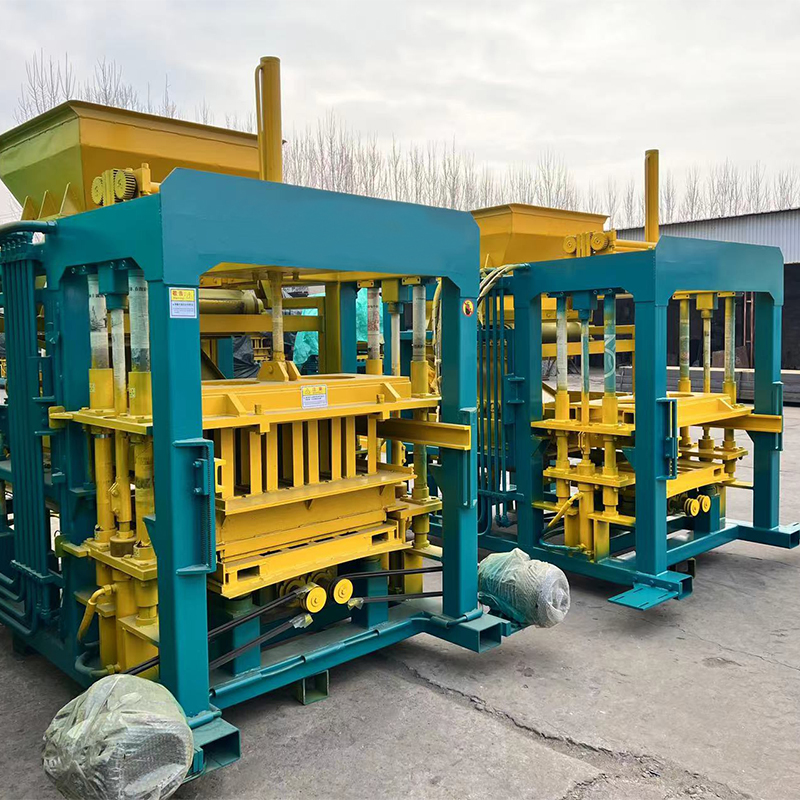
Image source Aiwei Block Machine
Introduction
The construction industry is one of the largest contributors to global environmental degradation, accounting for a significant portion of energy consumption, resource depletion, and waste generation. As the world becomes increasingly aware of the need for sustainable practices, the construction sector is undergoing a profound transformation. The use of eco-friendly brick and block making equipment is at the forefront of this revolution.
The Need for Sustainability in Construction
Environmental Impact of Traditional Brick and Block Production
Traditional brick and block production methods have long been associated with adverse environmental impacts. These methods typically involve resource-intensive processes, high energy consumption, and the release of greenhouse gases into the atmosphere. Moreover, they generate substantial waste, contributing to landfill problems.
The Green Building Movement
In response to these challenges, the green building movement has gained momentum worldwide. Builders, architects, and manufacturers are increasingly committed to reducing the environmental impact of construction. Eco-friendly brick and block making equipment are central to achieving this goal.
Innovations in Eco-Friendly Brick and Block Making Equipment
Sustainable Materials
One of the most significant innovations in the realm of eco-friendly brick and block making equipment is the use of sustainable materials. Manufacturers are now incorporating recycled content into the production process. Materials such as crushed glass, recycled plastics, and industrial byproducts can be blended with traditional raw materials, reducing waste and conserving natural resources.
Energy-Efficient Kilns
Traditional kilns used in brick and block production are notorious for their high energy consumption. However, modern eco-friendly kilns have undergone substantial improvements. They incorporate advanced insulation materials and heating technologies that significantly reduce energy consumption. Some of these kilns even utilize renewable energy sources such as solar power, further minimizing their environmental impact.
Low-Carbon Concrete Blocks
Another innovation in eco-friendly brick and block making equipment is the development of low-carbon concrete blocks. These blocks are designed to minimize carbon emissions during production. They typically use alternative cementitious materials, such as fly ash or slag, which have a lower carbon footprint than traditional Portland cement.
Digitalization and Sustainable Practices
Real-Time Monitoring
The integration of digital technologies and the Internet of Things (IoT) has transformed eco-friendly brick and block making equipment. Sensors and cameras installed on these machines continuously monitor various parameters, such as temperature, pressure, and production speed. Real-time data is transmitted to a central control system, enabling operators to identify and address issues promptly, reducing downtime and optimizing production.
Predictive Maintenance
IoT-enabled machinery also offers predictive maintenance capabilities. By analyzing data and wear patterns, these machines can predict when maintenance is required. This proactive approach minimizes unexpected breakdowns, further improving the efficiency of production facilities.
High-Performance Eco-Friendly Equipment
Modular Machinery
Eco-friendly brick and block making equipment offer greater flexibility through modular design. Manufacturers can configure these machines to produce various types of bricks and blocks by simply changing molds and settings. This adaptability reduces the need for multiple specialized machines, streamlining production and saving costs.
Quality Assurance
Ensuring the quality of eco-friendly bricks and blocks is paramount for construction safety and longevity. Advanced machinery is equipped with automated testing systems that use non-destructive testing methods, such as ultrasonic or X-ray scans, to identify defects and weaknesses in materials. Any subpar products can be removed from the production line before they reach the construction site, guaranteeing the structural integrity of buildings.
Benefits of Eco-Friendly Brick and Block Making Equipment
Reduced Environmental Impact
The primary benefit of eco-friendly brick and block making equipment is the substantial reduction in environmental impact. Sustainable materials, energy-efficient kilns, and low-carbon concrete blocks all contribute to lower greenhouse gas emissions and resource conservation.
Energy Efficiency
Eco-friendly equipment promotes energy efficiency, reducing the overall energy consumption associated with brick and block production. This not only reduces operational costs but also aligns with the broader goal of sustainability.
Waste Reduction
The incorporation of recycled materials and sustainable practices minimizes waste generated during production. Less waste means fewer materials ending up in landfills, reducing the strain on waste management systems.
Improved Quality
Eco-friendly equipment often results in higher-quality bricks and blocks due to the use of precision controls and quality assurance systems. These high-quality materials contribute to safer and more durable construction.
Challenges and Considerations
Initial Investment
While eco-friendly brick and block making equipment offer numerous benefits, the initial investment in advanced machinery and sustainable practices can be higher than traditional methods. Manufacturers and construction companies must carefully evaluate the long-term cost savings and environmental benefits.
Training and Transition
Operating and maintaining eco-friendly machinery may require specialized training for personnel. Companies must invest in employee training to ensure safe and efficient operation. Additionally, transitioning from traditional to eco-friendly methods may necessitate adjustments to workflows and production processes.
Sustainable Sourcing
Ensuring a continuous supply of sustainable materials can be a challenge. Manufacturers must establish reliable sources for recycled materials and sustainable aggregates to maintain production consistency.
The Future of Eco-Friendly Brick and Block Making Equipment
The future of eco-friendly brick and block making equipment is promising. As the construction industry continues to embrace sustainability, manufacturers are likely to invest more in research and development, resulting in even more advanced and eco-friendly machinery.
Conclusion
Eco-friendly brick and block making equipment are central to the Green Building Revolution, playing a vital role in reshaping the construction industry toward sustainability. These machines are not just improving the manufacturing process; they are redefining the way we build. As the world recognizes the urgency of environmental conservation, the adoption of eco-friendly equipment becomes imperative. The benefits of reduced environmental impact, energy efficiency, waste reduction, and improved quality make eco-friendly brick and block making equipment a critical component of sustainable construction practices. By embracing these technologies, the construction industry can build a greener, more sustainable, and environmentally responsible future, one brick and block at a time.
